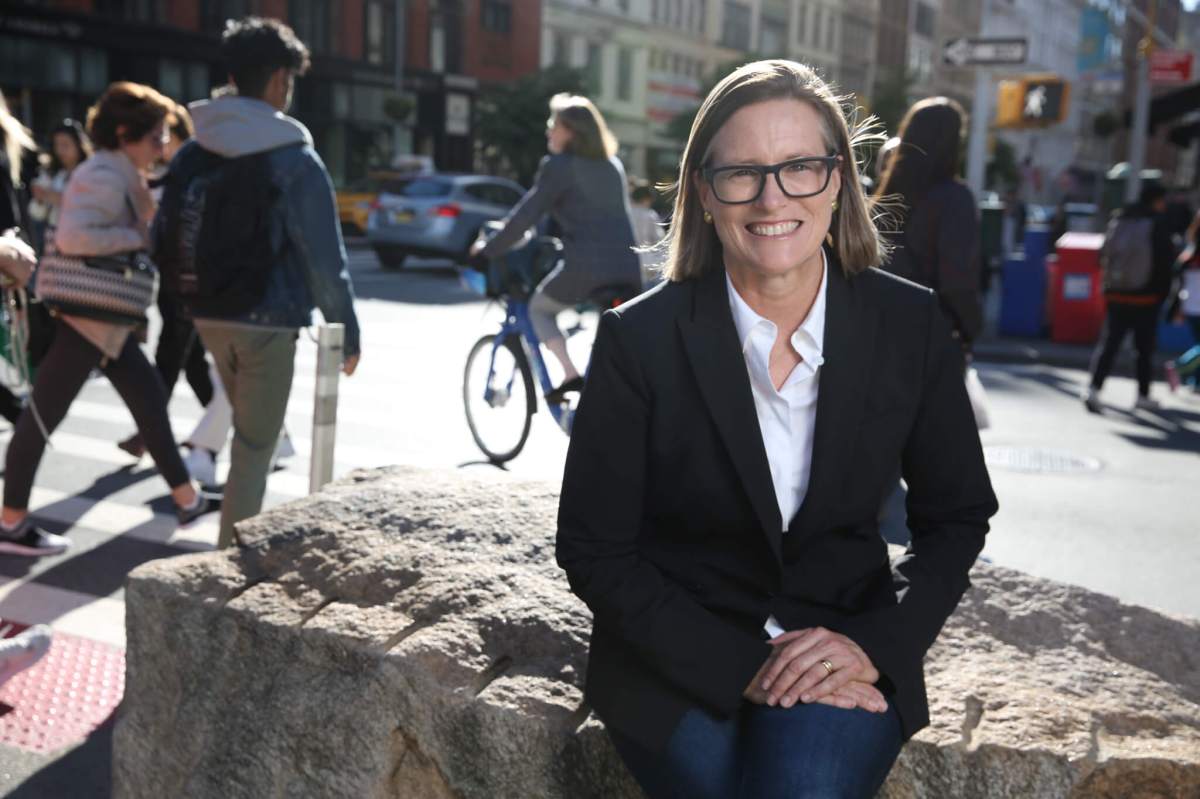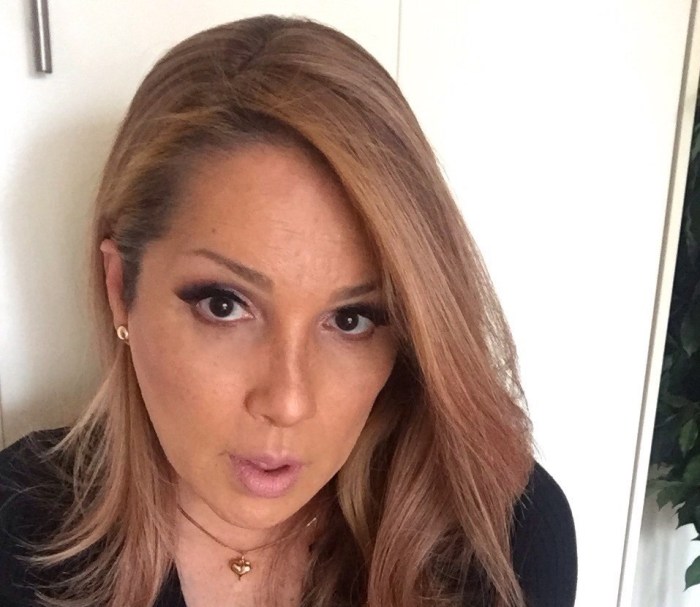This LGBTQ+ History Month, take a walk anywhere in the five boroughs and you’ll likely encounter an eye-opening landscape of LGBTQ+ history.
In the Throgs Neck section of the Bronx, you can visit the unassuming-looking childhood home of the late Christine Jorgensen, who became the focus of a worldwide media frenzy after she received gender confirmation surgery in Denmark in 1952.
Or pass by Friend’s Tavern in Jackson Heights, the oldest active gay bar in Queens, known as a safe gathering place for gay and bisexual Latinx men.
Walk through Green-Wood or Woodlawn cemeteries during Pride Month and see dozens of rainbow flags on the gravesites of some of the city’s LGBTQ+ notables.
Those places and hundreds of others are documented on the NYC LGBT Historic Sites website, which presents diverse sites from the 17th century to 2000 illustrating the community’s influence on the history and culture of the city and the nation.
As the new president of The New York Community Trust, I am proud to be part of an organization that was one of the earliest supporters of this ground-breaking initiative that is uncovering this overlooked history. I also have had the opportunity to learn about one important, but often overlooked, facet of the Trust’s own history — the story of New York’s LGBTQ+ philanthropists.
Many of these transformative figures left portions of their estates to support future generations of LGBTQ+ New Yorkers. Their foresight and generosity provided critical resources and hope during some of the most challenging times for the community.
Sam Wilner was among the earliest LGBTQ+ donors to The Trust. A Bronx native, Sam served in the Army Air Force for nearly two decades before returning to New York, where he worked in the City University of New York budget office and donated his time for LGBTQ+ causes.
He volunteered at Gay Men’s Health Crisis in Manhattan during the 1980s and ’90s, advising callers to its hotline and counseling gay men who had few welcoming places to turn. He also assisted at a Brooklyn nonprofit, Touch, that served weekly dinners for people with AIDS.
Sam died in 1996 at age 80, leaving his wealth to LGBTQ+ organizations through the Sam Wilner Fund, which continues to support programs such as the Stonewall Community Development Corporation’s supportive housing for LGBTQ+ veterans and the Hetrick-Martin Institute, an invaluable resource and advocate for the city’s LGBTQ+ young people and a driving force in the creation of the nation’s first high school for LGBTQ+ teens.
Like Sam, Royal Marks was a passionate advocate, motivated in part by his partner’s battle with HIV/AIDS. Frustrated by the lack of government action, he organized fundraising campaigns, and dedicated the fortune he earned as an accomplished art dealer to fund research and provide palliative care.
Royal, who died from AIDS-related complications, established the Royal S. Marks Foundation Fund at The New York Community Trust in 1992 to support HIV/AIDS initiatives dedicated to prevention, care, research, and advocacy.
Annie Rensselaer Tinker, born in 1884 to a family of successful bankers and lawyers, was a social activist and met the love of her life, Kate Darling Nelson, in Italy while doing volunteer work during World War I. In 1918, Annie named Kate as her heir.
After Annie’s passing, Kate left a large portion of the estate to help older women with the financial and social support they needed to live independently. That work continues today through the Annie Rensselaer Tinker Fund, which supports vital services for older women through charities such as Citymeals-on-Wheels and Greenwich House.
Bruce Dresner, a successful tax attorney, supported LGBTQ+ causes throughout his life and his advocacy continues through a fund that supports local organizations, including the Callen Lorde Community Health Center, New Pride Agenda, and the American LGBTQ+ Museum.
The museum, which will be on the top floor of the New-York Historical Society’s expanded building in 2025, will preserve, research, and share LGBTQ+ history, an ongoing testament to the role of philanthropy in elevating the importance of underrepresented American historical narratives.
Throughout this month celebrating LGBTQ+ history, it’s important that we not only honor the memories of these philanthropists, but draw inspiration from their generosity. Each of them stepped forward to help others during their lifetimes and had the foresight to ensure they could fight the good fight long after they were gone.
Like me, many of today’s donors to The Trust identify as LGBTQ+ and we are building a charitable legacy that will continue to support our community. I hope you will reach out and join us as we raise up the next proud generation of LGBTQ+ philanthropists, leaders, and community members.
Let’s use these powerful lessons of LGBTQ+ history as the inspiration to write and memorialize new hopeful stories of love and resilience.
Amy Freitag is president of The New York Community Trust.



































